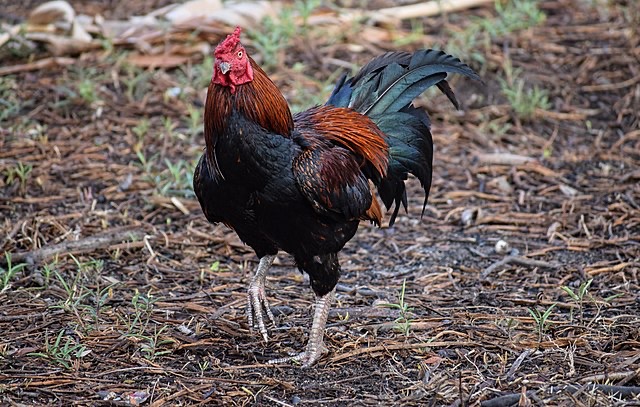Two men trained cockerels using treadmills for illegal fights but avoided jail time. This case exposes shocking animal cruelty and raises concerns about underground cockfighting operations and animal welfare enforcement.
Introduction
A disturbing case has emerged revealing how two individuals systematically trained cockerels for illegal fights—using treadmills. The operation, which shocked animal rights advocates and the public alike, unveiled a level of preparation and cruelty that goes beyond the norm for underground cockfighting rings.
While many expected a harsh penalty, the culprits escaped jail time, sparking a heated debate on the seriousness with which courts treat animal cruelty offenses.
The Shocking Discovery: Cockerels Trained for Combat
Authorities uncovered an operation where cockerels were conditioned like professional athletes. The birds were forced onto modified treadmills to build muscle, endurance, and aggression, a method rarely seen but brutally effective.
This wasn’t just about keeping birds fit—this was systematic preparation for bloodsport, designed to give these animals the edge in deadly fights. The discovery revealed the lengths to which some will go to profit from animal suffering.
How Treadmills Were Used in Illegal Cockfighting
The birds were subjected to intense treadmill sessions. These weren’t standard pet care machines—they were adapted to control pace and run time, forcing the animals into unnatural states of physical exertion.
The goal was simple: create stronger, faster, more vicious fighters. These birds were not being raised—they were being engineered for violence.
Inside the Operation: What Authorities Found
During the raid, investigators discovered:
- Treadmills with restraining mechanisms
- Spiked leg attachments often used in fights
- Evidence of past cockfighting matches
- Dozens of birds showing signs of injury or overtraining
The facility was equipped like a training gym, but for animals bred to maim and kill each other.
The Legal Outcome: How the Pair Avoided Jail
Despite overwhelming evidence, the pair avoided prison time, receiving community-based penalties and restrictions on animal ownership. This sparked backlash from animal welfare groups and concerned citizens, who argued the punishment did not fit the crime.
The sentencing raised questions about how seriously courts treat organized animal cruelty, especially when profit and gambling are involved.
Why Cockfighting Remains a Global Concern
Cockfighting is banned in many countries, yet it continues to thrive underground. In some cultures, it’s seen as tradition; in others, it’s a profitable form of illegal gambling.
What’s often overlooked is that animals suffer immensely in these fights—many dying from severe wounds, infection, or trauma. This case is a reminder that even in places with strict laws, cockfighting continues in the shadows.
The Ethics: Animal Cruelty in the Name of ‘Sport’
There is no justification for torturing animals for entertainment. Training birds to fight, especially using methods like forced treadmill conditioning, is a violation of their natural instincts and well-being.
This case highlights the need to challenge outdated views that see such cruelty as mere tradition or harmless sport. Animal cruelty is animal cruelty—regardless of cultural context.
Law Enforcement’s Ongoing Challenge
Illegal cockfighting rings are difficult to detect. They are:
- Secretive
- Often held in remote or disguised locations
- Supported by underground networks and betting pools
Without community tips or thorough surveillance, many operations remain hidden. This means harsher sentencing and public awareness are critical tools in fighting the cruelty.
Cultural vs. Criminal: The Fine Line in Blood Sports
Supporters often hide behind cultural heritage to justify cockfighting. But culture is not a shield for cruelty. Traditions that inflict suffering on sentient beings must be challenged and, where necessary, abolished.
Many countries have begun re-evaluating such traditions, recognizing that progress must include ethical treatment of animals.
The Message Behind the Sentencing
Although the two men avoided prison, their prosecution sets a precedent. It sends a message that training animals for illegal fights is a criminal offense, and law enforcement is watching.
The spotlight this case has generated could also deter others and prompt more proactive enforcement in areas where cockfighting still thrives underground.
How to Identify and Report Illegal Animal Fights
Knowing what to look for can save animals. Report suspected activity if you notice:
- Large gatherings in secluded areas
- Structures that look like fighting pits
- Birds with unusual wounds or missing feathers
- Crowds dispersing quickly at the sight of police or strangers
Always report such signs to local animal control or law enforcement.
What This Means for Animal Rights Advocacy
This case highlights the need for:
- Stricter sentencing guidelines
- Better education about animal cruelty laws
- Public awareness campaigns
- Enhanced animal rescue and rehab support
Animal cruelty doesn’t happen in a vacuum. It’s often tied to gambling, violence, and organized crime. Tackling it means tackling a broader network of exploitation.
Conclusion
The disturbing case of cockerels trained on treadmills for illegal fights shows just how cruel and calculated animal abuse can be. While the two men avoided jail, their exposure may help bring underground animal fighting into the light—and ultimately, to an end.
FAQs
1. What were the men doing with the cockerels?
They used treadmills to train cockerels for illegal cockfighting matches, building their strength and stamina.
2. Was this legal?
No. Cockfighting is illegal and considered a form of severe animal cruelty in many countries.
3. Why didn’t they go to jail?
Despite strong evidence, the court issued non-custodial sentences, sparking debate about the seriousness of animal cruelty sentencing.
4. Are such cases common?
Unfortunately, illegal animal fights still occur worldwide. Many cases go undetected due to their secretive nature.
5. What can I do if I suspect animal fighting?
Report immediately to your local authorities or animal welfare organizations. Every tip can save lives.



